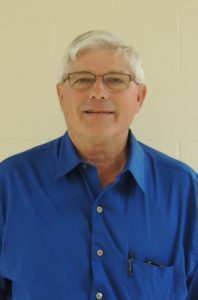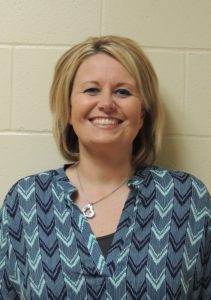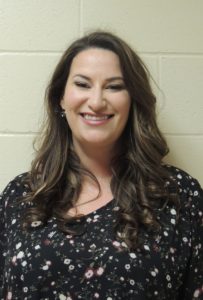Future of facilities, bond issue on voters’ minds
There was more agreement than disagreement among the candidates for the Greene County Schools board of education at a public forum hosted by the Jefferson Rotary Club last Thursday.
More than 50 persons attended the forum with moderator Rick Morain. He opened the forum noting the importance of school elections. “Education is any community’s biggest product… and we need to do the very best we can,” he said.
The four candidates – incumbent Mike Dennhardt, Dr Steve Karber, Lana Teeples and Catherine Wilson – all briefly introduced themselves.
Mike Dennhardt of Rippey farms and is in the construction business. He said he’s running for the kids. “I do a lot of stuff by my heart, what I think is right for the kids,” he said. Keeping good, qualified teachers in the district is a priority for him.
Steve Karber of rural Jefferson grew up in Grand Junction. He is a retired physician who practiced at McFarland Clinic in Jefferson and Greene County Medical Center. “I’m at a point in my life where I can provide service to the community, and I think our greatest asset is our children,” he said.
He said changes in the physical plant would optimize the money available for teachers’ salaries, and that teachers don’t get professional respect for what they do. “If we have happy teachers we’ll have happy kids and we’ll have well educated kids.”
He served on the Pay It Forward committee a year ago promoting the bond issue for a 5-12 campus.
Lana Teeples was born and raised in Calhoun County and has lived in the Jefferson area for 19 years. She has been a nurse for more than 20 years, including time at Greene County Medical Center. She now works as a quality manager for a company that works with the state. “I don’t have an agenda, per se, but to bring a different perspective to the board,” she said.
Catherine Wilson was born and raised in Jefferson and is a 1995 graduate of Jefferson-Scranton High School. She owns The Hairem salon in Jefferson and has three children in the school, a senior, a freshman, and a sixth grader. “I believe in this community and I believe in this school,” she said. She attends many athletic events to encourage kids. “I want to continue encouraging kids on the school board.”
Morain posed the first question, asking how the candidates would balance a desire to be “approachable” by the concerned public with the board policies for handling grievances against school policies or employees. Carman and Wilson noted the importance of listening respectfully, and all four said they would encourage people to follow the board’s grievance procedure.
Morain then opened the floor for questions. It was clear the failed bond issue and the current state of school facilities is on voters’ minds.
Sean Sebourn, parent of two elementary students, asked why the proposal didn’t get the majority needed for approval and what process the board should take going forward. (Note: The $19.4 million bond issue was approved by 53 percent of the voters, but a 60 percent approval is needed for a bond issue.)

Karber said he was surprised at the number of people, particularly people with young families, who didn’t know there was an election. He suggested that employers and Farm Bureau members be polled to find out what they want students to have in their education. “We need the whole county to come together,” he said. The Grand Junction building was closed “because of what the state tells us we have to do, and we had a lot of angry people over that. We have to get over those things. We have to figure out how we can come together as a community and figure out how we’re going to educate our children efficiently, with modern facilities that allow us to do the things we need to do.”
Wilson said everybody wants what’s best for their children, “but I also believe democracy works. We voted twice and it failed twice.” She said she’d like to see a committee form of representatives from all parts of the district and “decide what we’re willing to vote ‘yes’ on… Money is a sensitive issue, and we need to be sensitive to that.”

Teeples said the board needs to hear why people voted ‘no’. “We need to have a talk about wants vs needs.” She said the district should establish short-term and long-term goals. “We need to bring all players to the table. We need to engage the community. We would have a much stronger process in the end by bringing all the people together. It’s an elephant in the room. It’s a tough conversation to have.”
“We know we have facility needs that need to be addressed…. But we need to come together and compromise and come up with a plan both sides are comfortable with,” Teeples said.
Dennhardt blamed the poor farm economy and anger on the part of Grand Junction and Rippey residents because the proposal called for closing the Grand Junction school building. (The building was ultimately closed even without approval of a new 5-12 campus.)
Mary Weaver of Rippey asked later during the forum for more specifics on a bond referendum and noted public comments that the previous proposal had too little classroom space and too much emphasis on athletics. She asked the candidates how they could make a bond referendum successful.
In responding to that question, Teeples said she voted against the proposal last September. “I believe it comes down to a conversation about wants vs needs, if that’s how we’re going to meet in the middle…. I don’t think we can move it forward until we get the right people to the table to understand why we’re not getting the votes needed…. I”ll come from the perspective that I did not vote ‘yes’.”

Wilson said she supports a bond issue and was on the Pay It Forward committee. “I do think the gym was a big issue. People couldn’t see the vision in spending that much money on something we already had,” she said. She thinks athletics are important in a school because athletes are held to a higher standard of behavior and grades. She said communication was not as good as it could have been. “We need to listen to the community and what they have to say, and then have a discussion about that,” she said.
Karber said 20 percent of people will vote against anything that will increase taxes. He said the gym would have been a center for the community, a location for graduations, music contests, concerts, and more, and that the current gym has privacy concerns. A new gym would be needed to meet the state requirements for physical education if all students in grades 5-12 were at the building. He suggested separate fundraising could be done toward the cost of the gym. He said that not many people came forward to address negative concerns to the Pay It Forward committee.

Dennhardt repeated that the farm economy was a factor in the election. He shared that people from other communities laugh at our current gym because it’s so outdated. He said if a school is going to be built, it should be done right, “to bring people to the community.”
Denny Lautner suggested Wild Rose Casino or another corporation fund the gymnasium. All four candidates said that would be fine, but Wilson cautioned there may be legal issues involved.
Teeples said there is an assumption that people who voted against the proposal did so because of the gymnasium. “Have you really asked them? Have you asked me? Maybe we’re in favor of a school, of a new building, but maybe it’s how it’s being executed. Maybe it’s the ability to handle a new school. Maybe it’s the trust level.” She said a sponsor for the gym would be great, but the real reason for ‘no’ votes needs to be heard.
Earlier during the forum Sebourn mentioned the condition of the current high school gym, which according to him is in disrepair. He asked who is accountable for poor looking facilities.
Teeples and Wilson had both been in the gym recently. Teeples said she’d ask if the school had a $20 million facility, would it be cared for the same as a 20-year-old facility? She said a school is a business and the board needs to assure the organizational flow is accountable.
Dennhardt and Karber both said they hadn’t been in the gym in several years. Dennhardt said the condition of the gym isn’t as important as the teachers.
Karber answered that the school needs to do the best it can to maintain the available facilities, and that the administration should be held accountable.
Weaver asked the candidates to comment on a perception that the Greene County district hasn’t done enough to reach out to the Paton-Churdan district.
Wilson answered first, and said she’d like to see one county-wide district and that communication should continue with P-C, but first the Greene County district should be sure that Rippey, Grand Junction and Scranton all feel part of the district.
Karber said in some aspects the schools are already combined, with shared high school classes and athletics. He said adults need to be open minded and financially responsible.
Teeples suggested the board should look at a short-term plan and a long-term plan, and look at sustainability of the district. She said the board should look at what needs to be done to bring the communities together and then work toward that.
Dennhardt reported he and follow board member Steve Fisher, along with superintendent Tim Christensen have met with representatives of the P-C board, and that they and the P-C community are not ready to join the Greene County district.
Morain asked the candidates to respond to the district’s new mission statement: “Promote lifelong learners through real world experiences.” All candidates agreed that vocational education is important. Karber said the school should give kids “the basic fundamentals” and real world opportunities as they arise.
The candidates didn’t agree on the answer to a follow-up question from Tori Riley about balancing vocational education and serving students who want a rigorous academic curriculum while dealing with a tight budget.
Wilson had less time to think than other candidates as the question went to her first. She said it was something to explore.
Teeples suggested that the community has many people in the trades who could mentor students for credit and provide real world experiences “without busting the budget.”
Dennhardt said, “Basically, there’s some of this stuff that just isn’t going to happen. The funding isn’t there. You’ve got to make the best decision you can as a board and listen to the administration and make the decision of what’s going to help the most kids. It’s something nobody likes on the school board, and it’s decisions you don’t like, but helping the most amount of kids is what you want to do.”
He didn’t say what he sees as a benefit to the most students.
Karber again promoted a new facility to become more energy efficient and save on utility bills. He said the school already offers advanced classes, but “it gets tighter all the time.” If the district were more energy efficient it could save 10 percent on utility bills and have 10 percent more to spend on teachers, he said.
Jill Hankel, a newcomer to the community, asked the candidates for their ideas for bringing new families into the district and making them feel welcome.
Wilson said the district should strive to be the best it can be so that fewer students open enroll out of the district. She said there could be a welcoming committee, but that wouldn’t be a board function.
Karber said a good school attracts people, and that well-paid teachers are part of that. He said 80 percent of a school budget is teachers, 10 percent is transportation and 10 percent is energy. “We have to have a new facility to be more efficient so we can pay our teachers more,” he said. “We need to make our school great and then brag about it.”
According to Dennhardt, a good school is important but creating more jobs is more important in bringing people to the community.
Teeples said she moved to the community because of the people she met while working at Greene County Medical Center. She met her husband Derrick, a Jefferson native, after she moved here. She said the district should market itself and ask newcomers why they chose to move here.
The candidates all answered that given a choice between voters, teachers or students, students were their top concern.
Heather Patrick beat Morain to the final question, asking candidates why they deserved her vote.
Wilson answered first. She said she believes in Greene County, in Jefferson, and in the students. She said she is honest, willing to listen to people who know things she doesn’t know, willing to listen to concerns, and she’s open-minded. She said she’d like to build trust between the board and the administrators and the community.
Karber said everybody has good reasons for running and all candidates are good choices. He said he’s a promoter of the school district and tries to be level-headed. He served on the board of directors at McFarland Clinic for 12 years and has had training in consumer and employee relationships.
Dennhardt agreed that all candidates want what’s best for our children and to see the community grow. He said he’s on the school board and the Greene County Youth Athletic Association board because he wants to see the community grow, not shrink.
Teeples said she’s thought of running for the school board for four years. She said she would bring a different perspective, not having a lifelong tie to the district, and that she can represent people from all communities in the district. She said she’d like to see that the services provided to students by the district result in the best outcomes, and that students are given the best foundation possible. She said a board should provide checks and balances for the organization and be sure the organization is running efficiently. She said there’s an opportunity for the district to do better than it has.
~by Victoria Riley, GreeneCountyNewsOnline
